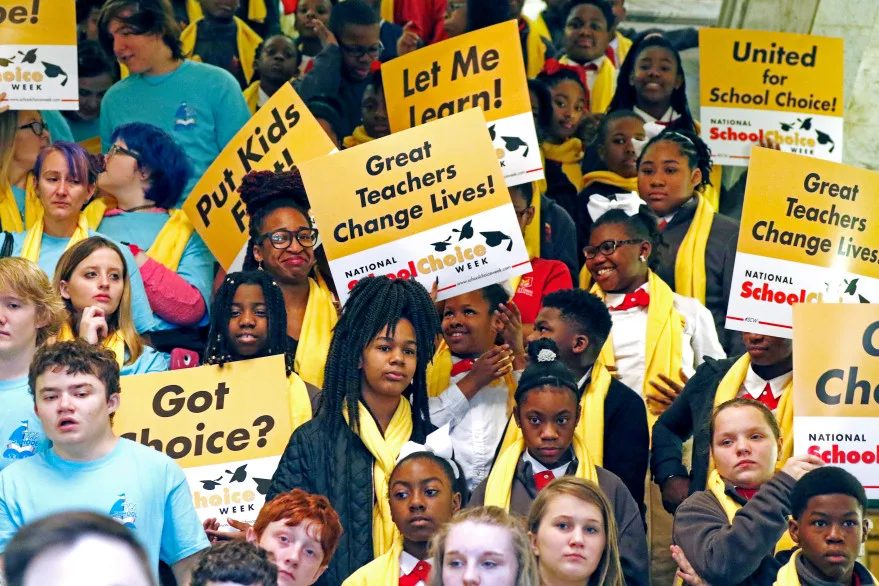
The growing national debate behind reparations has reached a tipping point in recent weeks.
A state senator and member of the California reparations task force last week brushed aside worries regarding the financial and political implications of offering “free tuition, home loan assistance, and tax breaks” to eligible Black residents in the state, asserting that these provisions could “be easily provided.”
State legislators in California — which was never a slave state in any capacity–have also passed a reparations package that could result in payments to Black Californians of $1.2 million per person. However, state lawmakers are warning Californians that they shouldn’t expect cash payments, with Senator Steven Bradford (D-CA) saying “I want people to have a broader view on what reparations could be.”
As lawmakers weigh alternatives to cash payments for reparations, there is a non-intrusive and morally permissible way to do so: Education Savings Accounts.
Education, according to most statistical markers of a successful life, is the key to obtaining higher incomes and a higher quality of living.
Historically, both African-American and Hispanic students have had the highest high school dropout rates of any ethnicity, including white students, a number which has thankfully declined in recent times.
Black youth scored a 927 out of 1600 on the SAT, which is a predictor of college readiness, the lowest score of any ethnic group. It is no surprise then that Black men have the lowest college completion rate which hovers around 40%.
The key to reversing these dangerous trends rests in pre-secondary and secondary education. ESAs can do wonders in both of these areas.
ESAs provide families with increased flexibility in choosing educational options that best meet their child’s needs. This can be particularly advantageous for Black students who may live in areas with limited access to high-quality schools. ESAs can enable families to explore various educational avenues, including private schools, tutoring services, online courses, or specialized programs, empowering them to find the best fit for their child’s learning style and goals.
ESAs can help bridge the achievement gaps between Black students and other ethnicities by giving families the financial means to access educational resources that can enhance academic achievement. With ESA funds, Black students can benefit from additional tutoring, enrichment programs, or extracurricular activities that can supplement their learning and help them succeed.
Black students who are able to escape failing school districts have been proven to achieve great educational heights, which ESAs easily make possible. A study from Stanford University’s Center for Research on Education found that between 2015 and 2019 Black students attending charter schools “had 35 days more growth in a school year in reading and 29 days in math. This would be as if the students had attended an additional 1.5 months of schooling each year.” The study concluded.
ESAs may also hold the solution to the college achievement gap amongst Black students. ESAs are capable of funding higher education expenses such as college tuition, textbook, and relevant costs. By starting early and focusing on ESAs, Black families can alleviate the costs of education which so often hold Black students back from achieving their potential. This financial support is crucial for empowering Black students to achieve new heights in education.
The most important and unspoken argument in favor of ESAs is a simple moral proposition. Reparations suggest that expropriation and unjustly distributing resources is the way to solving Black America’s problems. ESAs, however, emphasize the individual’s ability to shape their destiny by use of free will. Reparations presumes that African-Americans are limited by their circumstances and need government intervention to help them. ESAs, however, presume that smart investing, wit, and planning—all behaviors in an individual’s control—can provide a pathway to success. The two worldviews could not be further apart.
Whenever you hear about “reparations” for slavery or racial inequities, remember that no problem facing Black Americans is significantly beyond their control. California lawmakers have a unique opportunity to uplift the next generation of Black Americans by emphasizing a culture of achievement and hard work over a culture of victimhood and grievance. Through ESAs, Black students will begin to see their potential firmly within their sights.
Christian Watson is a spokesman for Color Us United.

